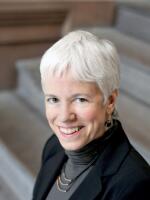Governor Cuomo continues to try to revise his role in creating the Moreland Commission. He now says the defunct commission was never intended to investigate to prosecute anyone.
Early in December, Governor Cuomo was asked about the Moreland Commission on government corruption that he created, and then ended. He said it was never supposed to actually probe suspected law breaking or accuse any state politicians of illegal acts.
“The Moreland Commission was not an investigative, prosecutorial commission,” Cuomo said. “That commission was to educate the public, to spur the legislature to pass ethics laws.”
The statements raised eyebrows, because they were in direct contrast with the actual full title of the Moreland Commission, which was the “Moreland Commission to Investigate Public Corruption”, and the Governor’s remarks seem to be the opposite of what he said when he announced the commission, back in July of 2013.
“We’re going to punish the wrongdoers,” Cuomo said. “And to the extent that people have violated the public trust, they will be punished.”
Cuomo even ran a television ad, the first of his 2014 reelection campaign, reiterating his intentions.
“I am appointing a new independent commission, led by top law enforcement officials from across this great state,” Cuomo said in the ad. “To investigate and prosecute wrongdoing.”
Cuomo ended the commission in March of 2014, as part of a budget deal that included some ethics reforms, including new laws against bribery and creating the crime of “corrupting the government”.
The closure of the commission became controversial, when Cuomo aides were accused of stopping the district attorneys and other investigators on the commission from probing campaign donors that gave heavily to the governor. When the governor objected to those accusations, Cuomo was chided by US Attorney Preet Bharara, who threatened to launch an investigation for possible obstruction of justice or witness tampering. Bharara successfully prosecuted the former Speaker of the Assembly on corruption charges in November, and is currently arguing a case against the former Senate Leader in federal district court, which is due to go to the jury on Thursday.
Cuomo, as early as April of 2014, was trying to re- characterize the role of the commission, saying it was more about getting the Senate and Assembly to pass reform legislation than it was ever about going after anyone. He said he told lawmakers that.
“I said consistently that if we passed that law then we would end Moreland,” Cuomo said. “And I told the Moreland Commission that from Day One.”
It’s unclear from his remarks whether Cuomo was telling commission members one thing privately, while he was telling the public he intended to prosecute and investigate potential law breakers.
The website for the Moreland Commission and links to it’s public hearings had disappeared from the Internet briefly. But after a report in the Albany Times Union mentioning the downed website, the site was restored. A link to one of the hearings, that dealt with dysfunction at the State Board of Elections, is still missing.
A spokesman for the governor did not address the discrepancy in Cuomo’s characterization of the Moreland Commission .But he did say that the partial disappearance from the Internet of the Moreland Commission website and video links to it’s public hearings is much ado about nothing. Spokesman Rich Azzopardi says it’s simply that the server for the site expired, and that technicians are transferring the data over to the new server on a rolling basis. He says other agency websites will also be briefly off line as the transfer continues.






